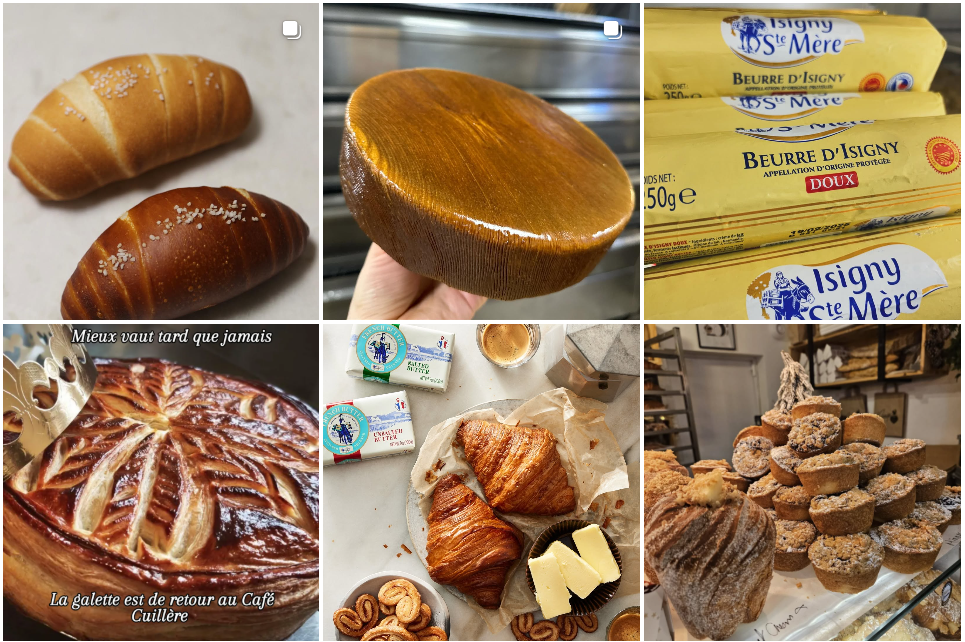Butter is an essential ingredient that enhances the flavor of any dish, whether it’s spread on bread, used in baking, or melted into sauces. But with so many options available worldwide, which ones are truly the best?
In this guide, we’ll introduce 10 of the world’s most delicious butters, their unique characteristics, and what makes them stand out. Plus, we’ll share real user reviews to help you choose the perfect butter for your needs.
How to Choose the Best Butter?
Before diving into our top picks, here are some key factors to consider when selecting high-quality butter:
- Ingredients: The best butter is made from cream and salt only, with no artificial additives. Always check the label for purity.
- Organic Certification: Organic butter ensures that no antibiotics, artificial growth hormones, or chemical fertilizers were used in the production process.
- Trans Fat Content: Avoid butters with trans fats, as they can be harmful to your health. Always look for products labeled as 0g trans fat.
- Salted vs. Unsalted: Choose unsalted butter if you want to control the salt content in your cooking, or go for salted butter for extra flavor and longer shelf life.
Top 10 Butters in the World
1. Échiré Butter (France)
A legendary French butter known for its smooth texture and delicate hazelnut aroma. Échiré butter is favored by Michelin-star chefs and European royalty.
✔️ Pros:
- Rich, creamy texture with a refined taste
- High-quality French cultured butter
- Ideal for pastries and fine dining
❌ Cons:
- Expensive compared to standard butters
- Short shelf life due to natural ingredients
💬 User Reviews:
- “The texture is incredibly smooth, and the flavor is unmatched. Perfect for croissants!”
- “A bit pricey, but worth it. Elevates any dish with its rich taste.”
- “It’s fresh but has a short shelf life, so I use it quickly!”

2. Isigny Sainte-Mère Butter (France)
A traditional Normandy butter with a rich, creamy texture and slightly tangy finish.
✔️ Pros:
- Made with high-quality Normandy cream
- Buttery richness with a smooth, balanced taste
- Great for baking and cooking
❌ Cons:
- Hard to find outside of Europe
- Pricey but worth it
💬 User Reviews:
- “The best French butter I’ve ever had! It’s smooth and melts beautifully.”
- “A must-have for pastry chefs!”
- “It’s a little expensive but totally worth it for special occasions.”

3. Président Butter (France)
One of the most famous French butters, known for its deep flavor and creamy consistency. It’s a go-to for baking and spreading.
✔️ Pros:
- High butterfat content for rich flavor
- Available in both salted and unsalted versions
- Affordable compared to premium French butters
❌ Cons:
- Slightly harder texture than some competitors
- Can be difficult to find in some countries
💬 User Reviews:
- “This is my go-to baking butter—it makes everything taste better!”
- “I love how creamy it is, even at room temperature.”
- “Affordable and high-quality—a great everyday butter!”

4. Paysan Breton Butter (France)
A Brittany butter made with traditional methods, offering deep flavors and a rich, smooth texture.
✔️ Pros:
- Traditional French cultured butter
- High-quality ingredients for exceptional flavor
- Smooth and creamy texture
❌ Cons:
- Not widely available outside France
- Slightly expensive
💬 User Reviews:
- “This butter is heavenly! Rich, creamy, and perfect on toast.”
- “I use it for baking, and my pastries have never been better.”
- “A little pricey, but totally worth it!”
5. Anchor Butter (New Zealand)
A New Zealand favorite, known for its clean taste and high-quality dairy.
✔️ Pros:
- Made from grass-fed New Zealand cows
- Smooth, creamy, and rich
- Great for both cooking and spreading
❌ Cons:
- Not as flavorful as some European butters
- Slightly harder texture
💬 User Reviews:
- “A great everyday butter—affordable and delicious!”
- “Perfect balance of creaminess and freshness.”
- “Good for baking, though not as buttery as some premium brands.”
6. Lurpak Butter (Denmark)
One of the world’s best-selling butters, Lurpak is famous for its smooth texture and delicate flavor.
✔️ Pros:
- Mild yet creamy taste
- Available in both salted and unsalted versions
- Easy to spread, even when cold
❌ Cons:
- More expensive than standard butters
- Can be hard to find in some regions
💬 User Reviews:
- “Super smooth and easy to spread. I love it on fresh bread!”
- “Mild but very creamy—perfect for everyday use.”
- “It’s a little pricey, but totally worth it.”
7. Golden Churn Butter (Malaysia)
A popular butter in Asia, known for its long shelf life and rich flavor.
✔️ Pros:
- Canned packaging allows long-term storage
- Rich, buttery aroma
- Great for both baking and cooking
❌ Cons:
- Not as creamy as some European butters
- Needs to be refrigerated after opening
💬 User Reviews:
- “Super convenient for long-term storage.”
- “A solid choice for baking cakes!”
- “Love the aroma and texture.”
8. Kerrygold Butter (Ireland)
A grass-fed Irish butter, known for its golden color and rich taste.
✔️ Pros:
- Naturally golden due to grass-fed cows
- Deep, buttery flavor
- Excellent for cooking and spreading
❌ Cons:
- Hard to find in some countries
- More expensive than regular butter
💬 User Reviews:
- “The best Irish butter—perfect for toast and scones!”
- “Rich, deep flavor that makes everything taste better.”
- “Totally worth the price!”
9. Beillevaire Butter (France)
A handmade French butter, known for its premium quality and luxurious taste.
✔️ Pros:
- Hand-churned, making it extra creamy
- Deep, nutty flavor
- Perfect for pairing with cheese
❌ Cons:
- Hard to find outside France
- Expensive
💬 User Reviews:
- “The ultimate French butter experience!”
- “Perfect with fresh bread and cheese.”
- “Expensive but amazing quality.”
10. Miyashita Butter (Japan)
A Japanese specialty butter, known for its delicate, milky flavor.
✔️ Pros:
- Ultra-smooth texture
- Delicate and mild taste
- Great for Japanese cuisine
❌ Cons:
- Hard to find outside Japan
- More expensive than regular butter
💬 User Reviews:
- “Japanese precision in butter form—incredible!”
- “Perfect for making fluffy pastries.”
- “A unique, subtle butter experience.”
Final Thoughts
Whether you prefer French, Irish, Danish, or Japanese butter, each of these choices offers something special. Try them and elevate your cooking!